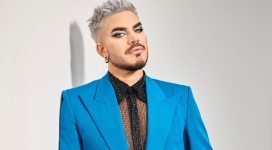A new survey released by the Barna Institute revealed that 86 percent of Christian evangelicals would likely vote for President Bush in the upcoming election in November. The survey, which asked 1,619 adults who they would vote for, divided up the adults by their faith and the way they practice their faith.
On the whole, Bush received the votes of 49 percent of those surveyed and Kerry 44. However, among registered voters, the support was tied at 43-43.
Kerry has the preference of people of non-Christian faiths by a margin of 55 percent to 22 percent and that of agnostics and atheists by a margin of 53 percent to 35 percent.
“Although voters from non-Christian faiths are a small slice of the electorate -- just one out of every eight are aligned with non-Christian faiths and one in 10 are atheist or agnostic -- they overwhelmingly side with Mr. Kerry,” said researcher George Barna upon his analysis of the data. “From that perspective, then, Mr. Bush's chances of re-election hinge squarely on the choices of the Christian body.”
The recent survey taken in May differ from the March survey conducted by the U.S. News and World Report and PBS; the latter showed Bush leading Kerry among evangelicals at 62-31 percent.
The discrepancy between the two survey likely comes from the researchers’ definition of what “evangelical” means.
According to Barna, evangelicals are those with specific characteristics different from “born-again non-evangelicals.”
The specific “evangelical” traits include: confessing their sins, believing that they had a responsibility to share their faith; believing in a real Satan; believing that the Bible is accurate “in all that it teaches;” believing in salvation by grace alone; believing that Jesus lived a sinless life; believing that God is all-knowing, all-powerful, perfect and still rules today.
Non-evangelical born again Christians are those who accept Christ and confess their sins, but do not believe in all of the above listed statements.
Among this group, 53 percent say they favor Bush over Kerry at a margin of 35 percent.
Also, those who consider themselves Christian but do not meet the criteria of “born again,” say they prefer Kerry at 52-32 percent.
Comparatively speaking, born-again evangelicals comprise only 7 percent of the registered voters, while the Christian voters are at 39 percent of the population.
“Getting his supporters to actually turn out on Election Day will be critical for Mr. Bush,” Barna said. “Currently, there is the danger of his most ardent supporters -- the evangelicals -- failing to show up because they are so firmly convinced he will win. Eighty-one percent say the President will win in November; only 6 percent predict a victory by Mr. Kerry.
“Non-evangelical born-agains are not quite as confident, but they are twice as likely to believe victory will go to Mr. Bush as to expect Mr. Kerry to win. Should that confidence deflate turnout among the Bush support base, a close election could swing to a different outcome.”
Barna said the analysis show the race will be determined by the group that has not yet set a preference to either candidate.
“These next five months will be critical in seeing where the undecided voters land,” said Barna. “They comprise one-fifth of the likely voters. That outcome will be intimately related to people's faith leanings and how they interpret the moral standards and personal character of the leading candidates. For instance, one-quarter of the non-evangelical born again segment, and one-third of the Notional Christian segment have yet to decide whom they will support. Their choices will tip the scale one way or the other on November 9."
The survey was conducted the last week of May through both telephone and online surveys.







